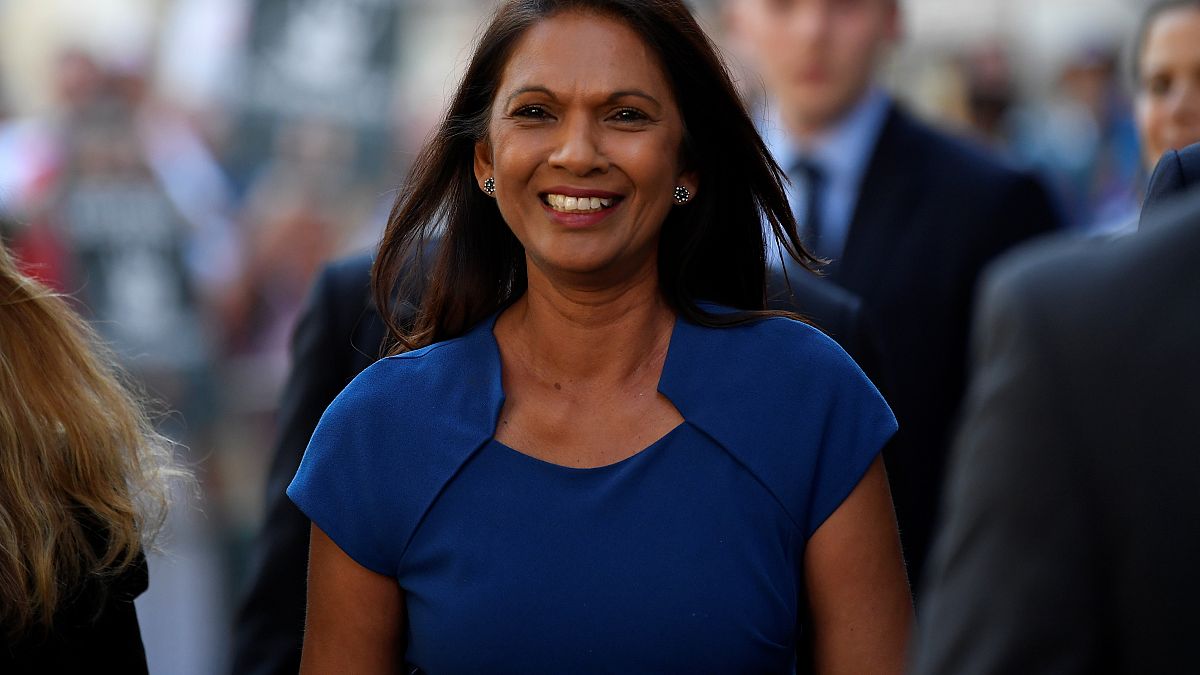A verdict over whether the UK government decision to prorogue — or suspend — parliament for five weeks was lawful is expected early next week.
A verdict over whether the UK government decision to prorogue — or suspend — parliament for five weeks was lawful is expected early next week.
Critics say the suspension was aimed at stifling opposition to Brexit but PM Boris Johnson argues it was normal procedure.
This week the UK's Supreme Court has been hearing cases against the government who say the suspension is illegal.
The three-day hearing ended on Thursday after lawyers for campaigners and the government summed up their arguments.
'Forbidden territory'
Lord Keen, who represents the government, kicked the proceedings off by reiterating his argument that prorogation of parliament is a political decision and "forbidden territory" for the courts.
Regarding the criticism over the five-week length of the prorogation — which the opposition has decried as designed to prevent debate on Brexit —, Keen said that each parliamentary session is regulated by a constitutional convention and not law.
Britain's parliament was prorogued on September 10 and will resume on October 14 — the longest suspension in more than 40 years.
He also argued that lawmakers will have plenty of time to discuss the country's exit from the European Union once they return to parliament and that they could have opposed the prorogation by tabling a motion of no confidence against the government.
Under UK law, the leader of the opposition can table such a motion at any time which if successful would trigger new elections. But the opposition has rejected calls by Johnson for snap elections, fearing that it would allow him to take the country out of the EU without an agreement and have instead fast-tracked a bill preventing him from doing so.
You can watch back footage from the first session of the hearing in the video player below.
'No rational reason'
Lord Pannick, representing campaigner Gina Miller, took over next.
He argued that the government failed to clearly state why such a long prorogation was needed and that it aimed to curb parliamentary scrutiny on government.
He said that Lord Keen had also failed to provide an adequate answer over the length of the prorogation because there was "no rational reason" for it.
He demanded the court rules that Johnson's decision to prorogue Parliament for five weeks "was beyond the scope of his powers" and said that parliament should be able to reconvene as quickly as possible if that were the case.
Judges said however that more clarity was needed over whether lawmakers could be recalled to parliament without the prime minister's intervention.
Government 'unlawful' scenarios
The government have released an eight-page document laying out the three possible scenarios open to them if the Supreme Court finds the decision to prorogue and its length unlawful.
The first scenario envisaged by the government says the court could leave "open the possibility of a lawful decision to prorogue for a period of the same length or for a period longer than that which has already elapsed at the date of order".
The second scenario would be that it would be unlawful for parliament "to remain prorogued" which the government warned would have "very serious practical consequences" as it would require a meeting of the Privy Council and a new Queen's Speech.
The final scenario, the government says, is the court could declare that the prorogation was unlawful and that parliament thus remains in session.
"However, depending on the court's reasoning it would still either be open or not open to the Prime Minister to consider a further prorogation," the document states.
Earlier in the day, lawyers for former prime minister Sir John Major are set to argue that current PM's prorogation of parliament was motivated by "political interest".
Representatives for the Welsh and Scottish governments, as well as Northern Ireland victims' campaigner Raymond McCord, also gave submissions for the panel of 11 justices to hear.
The Scottish Government was first to intervene, represented by Lord Advocate James Wolffe QC, Scotland's top law officer.
Read more
Watch again: Supreme Court told parliament suspension 'was political'
What is the UK Supreme Court, and what will this hearing mean for the prorogation of parliament?
